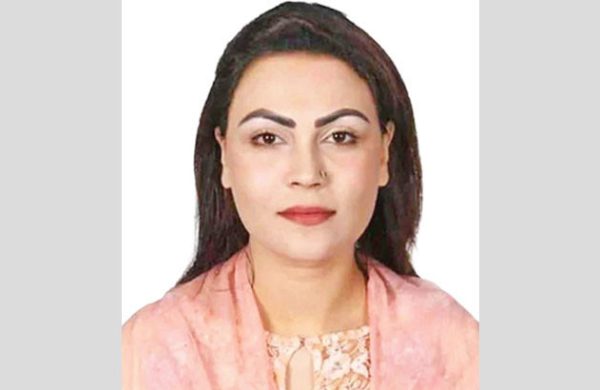Financing tops COP29 agenda
- Update Time : Saturday, November 16, 2024

–Motaher Hossain–
This year’s climate conference in Azerbaijan is significant for several reasons, with financing at the top of the agenda, drawing particular interest from Bangladesh. As one of the most vulnerable countries to climate impacts, Bangladesh eagerly awaits the funding commitments made by developed nations. Over 200 nations are attending, looking to see how much of the essential trillion-dollar climate financing need will be met. The conference will also address this year’s record-breaking heat, extreme weather events, and natural disasters.
Meanwhile, the Pacific nation of Papua New Guinea is boycotting the summit. This marks the first boycott by a country, yet the spotlight remains on the recent U.S. elections with Donald Trump’s victory. His decisions may steer the future direction of climate discussions. For these reasons, COP29 is attracting worldwide attention.
The “Conference of the Parties” (COP) is a UN initiative aimed at combating global climate challenges. The first COP meeting took place in 1995, with the issue of “climate change” introduced at the 1999 Rio de Janeiro Earth Summit. This 29th COP conference is taking place in Baku, Azerbaijan, to address climate change impacts and action. In his opening speech, Simon Stiell, the Executive Secretary of the UNFCCC, emphasized: “Now is a challenging time. I am not here to offer hope or dreams, but unity is our only option. We must continue to rise up until our goals are achieved to save humanity.”
Government leaders from over 100 countries are attending, including Bangladesh’s interim Prime Minister, Nobel laureate Professor Dr Muhammad Yunus. The conference runs from November 11 to 22, and Dr. Yunus stayed for three days from November 11-14. Representing a highly climate-vulnerable country, Bangladesh asserted its climate-related demands and demonstrate its role in climate resilience while advocating on behalf of other developing nations. Bangladesh’s stance is crucial, highlighting the flood damages and potential issues regarding loss and damage funds, the Green Climate Fund, and climate-induced displacement. Bangladesh seeks support for green technology from developed countries.
This is Dr. Yunus’s second international visit since taking office as interimChief Adviser. He met with various leaders while in Baku.
Recently released UN data states that 2024 is set to be the warmest year of the century, overshadowing other discussions with the anticipation surrounding Trump’s position on climate issues. Trump’s previous actions, such as the U.S. withdrawal from the Paris Agreement, have climate representatives watching closely for his next steps.
This two-week climate conference, being held in another oil-rich nation after the UAE, begins with sessions among officials and a high-level segment featuring world leaders. In the second week, ministerial-level negotiations will occur, culminating in a plenary decision. As in 2023, 2024 has seen widespread, severe natural disasters driven by ongoing fossil fuel use, with countries like Bangladesh facing intensified weather patterns. Extreme heat, cyclones, floods, droughts, and wildfires have suffered worldwide, resulting in loss of life, property damage, and economic challenges. In October, devastating floods in eastern Spain led to over a hundred deaths.
Bangladesh has experienced its share of weather extremes this year. After an intense cold wave, severe heat strained the country, followed by devastating floods that affected many regions, particularly in the southeast, impacting 11 districts severely. This was followed by Cyclone Remal, a slow-moving cyclone that lingered over Bangladesh for 50 hours, causing record-breaking rainfall.
Scientists report that the increase in natural disasters is a global phenomenon due to continued fossil fuel use, leading to 2024 likely becoming the warmest year in recent history. Many anticipate global temperatures will hit 1.5 degrees Celsius more above pre-industrial levels. Representatives from affected countries will raise their voices against developed nations in Baku, as global carbon emissions have broken all previous records, reaching 40.6 billion tons in 2023 and expected to rise further this year. The atmosphere now contains 50% more carbon than in pre-industrial times, with limited remedial action.
At COP28 in Dubai, nations committed to gradually phasing out fossil fuels, a historic pledge against the leading cause of climate change. However, progress has been slow over the past year, and questions now arise about whether the decision will return to this year’s agenda. Environmental advocates are expected to press for action on the fossil fuel phase-out. Despite the ongoing discussions, financing remains the focal point this year, with the world grappling with a financial crisis in combating climate change. The pledged funds from developed nations fall short, while annual financial demands continue to grow.
In recent years, the UN has worked on new financing targets, which developing nations are waiting for eagerly. As such, financing has been positioned as a top agenda item at COP29, with this conference being dubbed the “Finance COP.” Survey data suggests that addressing the climate crisis will require $500 billion to $1 trillion annually from international sources, five times the current commitments from wealthy nations. This funding is expected to start next year. However, there is debate about the sources of this funding, with a significant portion currently coming from private sectors and multilateral banks as loans. The host country, Azerbaijan, has announced a $1 billion fund to aid vulnerable countries in loss and damage response.
Meanwhile, Climate Action Network, representing 1,900 global civil society organizations, shared alarming data indicating that the debt burden on Global South countries is rising due to climate reparations owed by Global North nations. Developed nations have historically burned fossil fuels, leading to the climate crisis for which poorer nations now bear the consequences.
Following COP28, where the UAE achieved an unprecedented consensus on phasing out fossil fuels, Mukhtar Babayev, the newly appointed president of COP29, emphasized, “This is the Paris Agreement’s defining moment. I hope this summit paves the way for a new path.” The world, including Bangladesh, now awaits this long-anticipated “new path.”
(The writer is a journalist and General Secretary, Bangladesh Climate Change Journalists Forum)



















